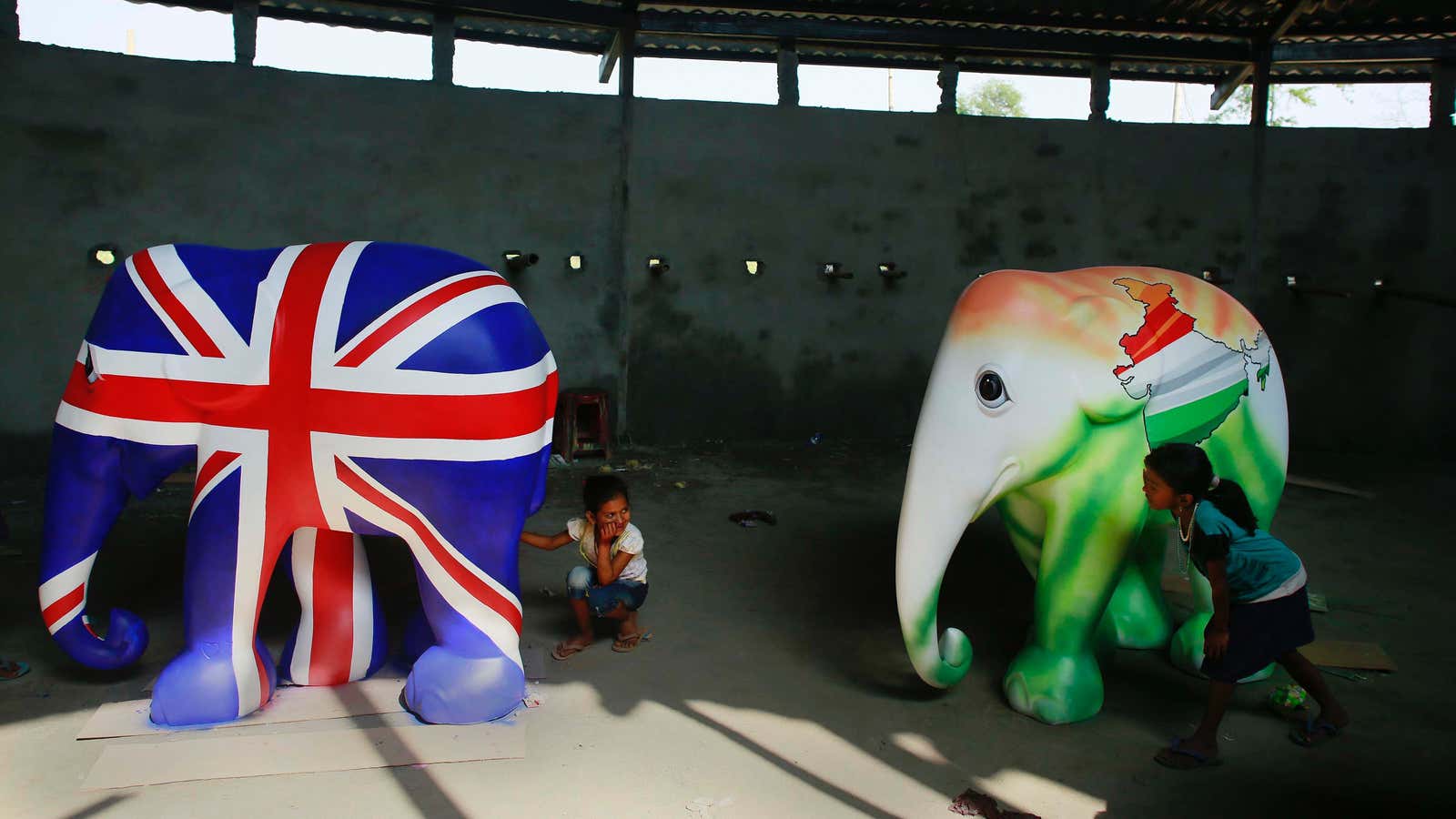By at least one estimate, more than 1 million illegal immigrants currently live in the UK. But shifting political winds, plus a crackdown on hiring practices, has a growing number of them looking for a one-way ticket home.
The UK has long been a landing point for immigrants from around the world, including hundreds of thousands from India. In 2008, a BBC investigation into the west London neighborhood of Southall—home to at least 800,000 illegal Indian immigrants at the time—revealed a network of young, poor, and usually male farmers from the Punjab who described themselves as faujis (soldiers). Many had entered the UK through Russia, and were working menial jobs to send their wages back home. A number of them were living on fake passports, licenses, and national security numbers. Some had destroyed their real passports on arrival, in the hopes of slowing down any deportation efforts.
Nearly a decade after the BBC report, an increasing number of the UK’s Indian immigrants are rethinking those tradeoffs. According to the UK Home Office, 2016 saw a total of 24,202 voluntary returns—excluding returns from detention, this is the UK’s version of “self-deporting“—and some 5,365 of them (22%) were Indian nationals.
“Conditions are bad here,”Jasdev Singh Rai, director of the Sikh Human Rights Forum, told Hindustan Times. ”They don’t get social security, can’t work … Rather than sit in poverty here, they prefer to return.”
Just a few years ago, UK employers and landlords might have looked past a person’s illegal status in the interest of cheap labor or easy rent money. But an economic downturn in the country, coupled with stricter housing rules and hefty penalties for using illegal labor, have drastically reduced the number of positions and housing options open to illegal immigrants.
Even for legal migrants from India—the largest foreign-born population in the UK—the situation is far from rosy: In 2012, the country abolished a post-study work visa that allowed foreign students to remain in the country for two years after graduation. In 2015, the government also increased by 24% the maintenance funds (living expenses) a student needed to have in their bank account. The UK has also raised the salary threshold for various visas, and added new English-language requirements.
As prospects in the UK dim, India itself is starting to shine: Of Indians choosing to leave the UK, nearly nine in 10 return to their homeland. India has been labeled the world’s fastest-growing major economy, and was ranked by Ernst & Young as the third-best destination for technology investments.
“Their return is a reflection of a combination of factors,” Virendra Sharma, the member of parliament for Ealing Southall, told Hindustan Times. “India is also progressing rapidly; they may feel that it is better to be back among family and friends.”
